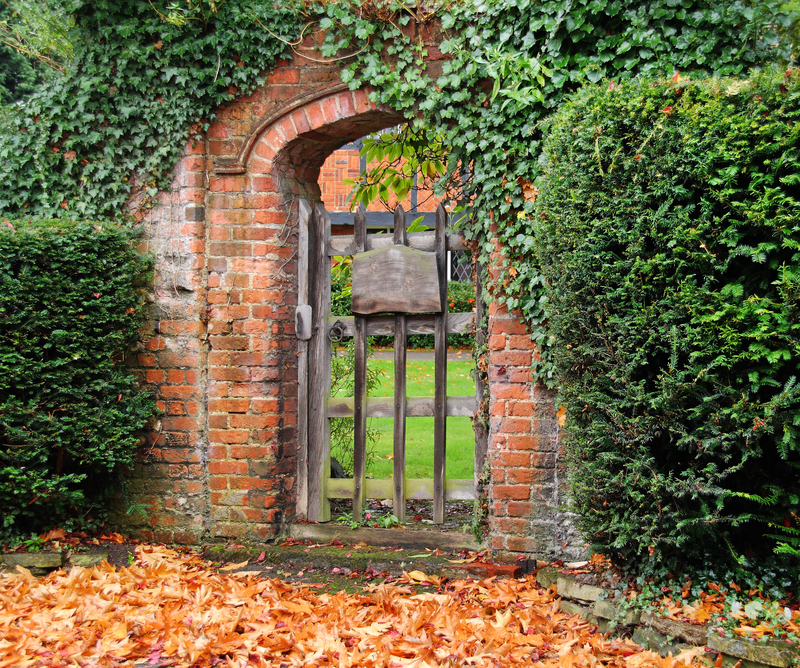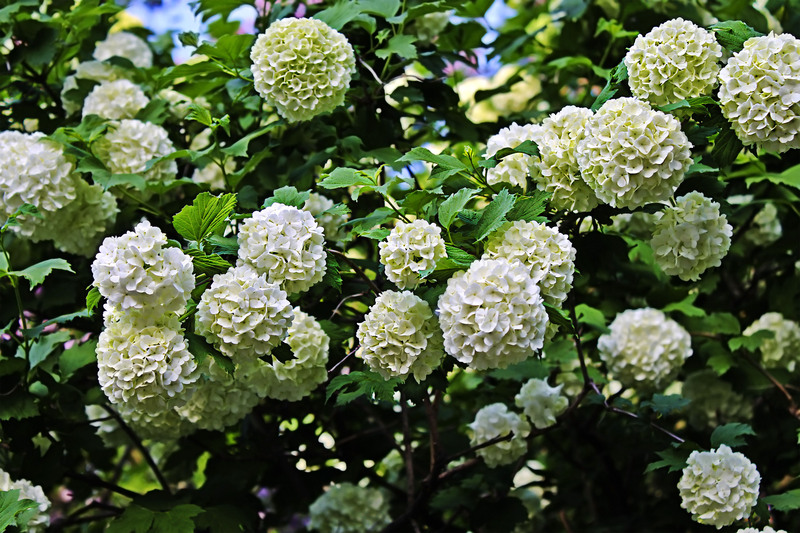Transform Your Garden with 3 Weed Control Tips
Posted on 12/06/2025
Transform Your Garden with 3 Weed Control Tips
Do you dream of a lush, vibrant garden free from the unsightly presence of weeds? Weeds can quickly take over your outdoor sanctuary, robbing your ornamental plants and vegetables of space, sunlight, and nutrients. Whether you're a seasoned horticulturist or a budding backyard enthusiast, mastering weed control is essential for a healthy and beautiful garden. In this comprehensive article, we'll introduce you to three proven weed control tips that can transform your garden and help you grow a space you're proud of. Read on for actionable advice, and discover the secrets to a more manageable, weed-free garden beds!

Why Effective Weed Management is Essential for Your Garden
Before diving into our top weed control tips, let's discuss why weed management is crucial. Weeds are more than just unsightly guests; they compete with your plants for water, light, and essential nutrients. This competition can stunt plant growth, reduce yields in vegetable patches, and introduce pests and diseases to your landscape.
By mastering garden weed control strategies, you can:
- Enhance Plant Health: Ensuring your plants have sufficient resources to thrive.
- Maintain Garden Aesthetics: A weed-free garden looks neat, tidy, and professionally maintained.
- Reduce Maintenance: Proper weed suppression saves time and effort in the long run.
- Prevent Weed Spread: Stop weeds from seeding and multiplying throughout your yard.
Tip 1: Employ Mulching for Natural Weed Suppression
What is Mulching?
Mulching is one of the most effective and eco-friendly weed control tips you can use. It involves spreading a protective layer of organic or inorganic material over the soil surface. This simple yet powerful practice:
- Blocks sunlight needed for weeds to germinate and grow.
- Maintains soil moisture for your desired plants.
- Regulates soil temperature to foster root health.
- Adds nutrients back to the earth when organic mulches decompose.
Types of Mulch for Weed Control
- Organic Mulches: Leaves, grass clippings, straw, bark chips, and compost.
- Inorganic Mulches: Landscape fabric, black plastic sheets, or gravel.
Both types offer unique benefits. Organic mulch improves soil quality as it breaks down, while inorganic mulch provides a longer-lasting barrier to weeds.
How to Apply Mulch for Maximum Weed Control
- Remove all visible weeds from your garden beds.
- Spread 2-4 inches of mulch evenly around your plants, being careful not to smother stems or trunks.
- Replenish and fluff mulch annually or as needed to maintain its effectiveness.
Mulching not only suppresses weeds but also beautifies your garden by giving it a well-tended look.
Tip 2: Adopt Smart Planting Strategies
Dense Planting to Outcompete Weeds
Strategic planting is a natural way to reduce weed growth in your garden. By filling garden beds with desirable plants and minimizing open soil, you limit opportunities for weeds to get established. Consider:
- Companion Planting: Pairing compatible species closely together to maximize ground coverage.
- Ground Covers: Planting low-growing, mat-forming species that form a living mulch, such as creeping thyme or clover.
- Staggered Planting: Use tall and short plants together to create multiple canopy layers, further reducing sunlight at soil level.
Landscape Design to Deter Weeds
Thoughtful garden design can boost your weed prevention efforts. Here's how:
- Create defined edges with bricks, metal strips, or stones to keep sod and weeds from creeping into your beds.
- Use raised beds or containers, which create distinct barriers that weeds struggle to cross.
- Install pathways with weed-resistant surfaces like gravel, mulch paths, or paving stones.
This approach is all about making it harder for weeds to take hold and making garden upkeep easier for you.
Choosing the Right Plants
Certain species are naturally aggressive and will fend off weeds by shading them out. Think about filling gaps with:
- Perennial groundcovers like ajuga, sedum, or vinca.
- Dense annuals such as marigolds or petunias.
- Ornamental grasses and spreading shrubs that actively compete for space.
This living barrier approach is a top organic weed control tip that also brings year-round beauty to your landscape.
Tip 3: Use Targeted Hand-Weeding and Mechanical Tools
The Importance of Early Intervention
While mulch and strategic planting reduce weed pressure, some persistent invaders may still break through. The key is to tackle them quickly and efficiently. Hand-weeding and selective use of garden tools are your last--but vital--line of defense against weed infestations.
For optimal results, follow these guidelines:
- Weed after rain: Moist soil makes it easier to remove entire roots of weeds.
- Weed early and often: Young weeds are much simpler to uproot before they seed.
- Use the right tools: Hori-hori knives, hand forks, or stirrup hoes can speed up the process and protect your back.
Technique Matters in Weed Removal
Proper technique helps ensure that weeds don't regrow. Aim to:
- Remove the whole root system to prevent regrowth, especially for perennial weeds.
- Disturb as little soil as possible to avoid exposing new weed seeds to light.
- Dispose of weeds properly: Do not compost weeds that have gone to seed or are invasive; bag and remove them from your property.
This hands-on weed control solution is labor-intensive but pays off tremendously, particularly at the start of the season, and is free from harsh chemicals.
Mechanical and Powered Weed Control Options
If you have a large area or face tough weeds, consider:
- Garden hoes: Quickly scrape annual weeds in open soil between rows.
- Weed torches: Use these carefully to flame away weeds--excellent for driveways and paths.
- String trimmers: For fast removal of top growth in lawn edges, although roots may remain and need attention.
Bonus Section: Proactive Weed Management Tips for a Year-Round Beautiful Garden
1. Prevent Weeds Before They Start
- Keep compost piles hot to destroy weed seeds.
- Avoid spreading contaminated soil or compost.
- Regularly inspect new plants and pots for hitchhiker weeds.
2. Water Wisely
When irrigating, use drip hoses or soaker lines to deliver moisture directly to desirable plants. This keeps surrounding soil drier and less hospitable to germinating weeds.
3. Maintain a Healthy Lawn
For those with lawns, mowing high, fertilizing appropriately, and overseeding will help thick grass outcompete weeds, reducing the need for herbicides.

Frequently Asked Questions About Weed Control
- What is the most effective way to keep weeds out of my garden?
A combination of mulching, dense planting strategies, and regular hand-weeding makes for the best, most sustainable weed control solution. - Is there a natural way to control weeds without chemicals?
Yes! Mulching, ground cover plants, precise garden design, targeted hand-weeding, and proper watering can all suppress weeds without the need for synthetic herbicides. - How often should I weed my garden?
Inspect your beds weekly, especially in spring and fall. Small, regular efforts are more effective and less time-consuming than infrequent, intensive sessions.
Conclusion: Transform Your Garden & Enjoy Lasting Weed Control Success
If persistent weeds have been undermining your gardening efforts, don't let frustration take root. By applying these three proven weed control tips--mulching, smart planting, and strategic hand-weeding--you'll take back control of your garden and experience a transformation in both beauty and productivity. Weeds may be relentless, but so can you!
Implement these tips to enjoy a thriving, weed-resistant landscape all season long. Start today, and soon you'll be admiring the vibrant plants and pristine beds that tell the story of an expertly managed garden.
Ready to transform your green space? Share your success stories, challenges, or favorite weed control methods in the comments below!
Transform your garden today with these weed control tips--your plants will thank you!
Latest Posts
New to Gardening? Discover 9 Vital Tips to Get You Started
Transform Your Backyard into a Child's Paradise
Container Gardening: The Art of Small Space Cultivation



